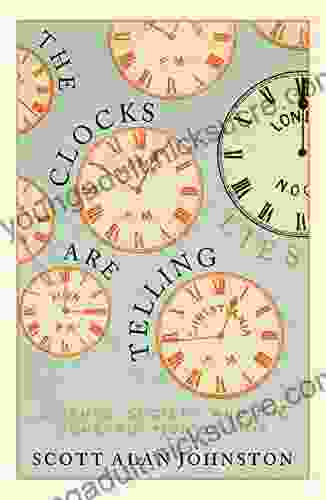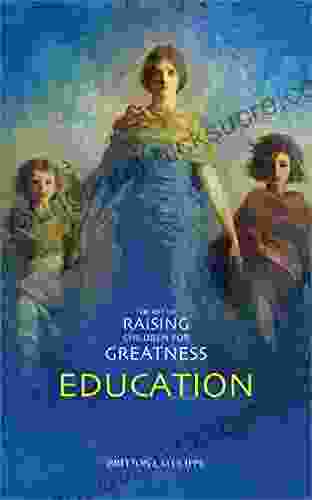Science, Society, and the Construction of Time

Time is one of the most fundamental aspects of our existence. We are constantly aware of it, whether we are planning our day, measuring our progress, or reflecting on our past. But what exactly is time? And how do we come to understand it?
5 out of 5
| Language | : | English |
| File size | : | 3933 KB |
| Text-to-Speech | : | Enabled |
| Screen Reader | : | Supported |
| Enhanced typesetting | : | Enabled |
| Word Wise | : | Enabled |
| Print length | : | 255 pages |
| Lending | : | Enabled |
The answer to these questions is not as simple as it may seem. Time is a complex concept that has been studied by philosophers, scientists, and historians for centuries. And while there is no one definitive answer to the question of what time is, there is a growing consensus that our understanding of time is shaped by both science and society.
Science and the Construction of Time
Science has played a major role in our understanding of time. In the 17th century, Sir Isaac Newton developed a theory of time that was based on the concept of absolute time. Absolute time was thought to be a universal constant that flowed at a constant rate, regardless of the observer's frame of reference. This concept of time was used to develop the laws of motion and gravity, which were the foundation of classical physics.
In the 20th century, Albert Einstein's theory of relativity challenged the concept of absolute time. Einstein showed that time is relative to the observer's frame of reference. This means that time can flow at different rates for different observers, depending on their speed and acceleration. Einstein's theory of relativity revolutionized our understanding of time and space, and it laid the foundation for modern physics.
Today, scientists continue to study the nature of time. They are investigating the relationship between time and quantum mechanics, and they are exploring the possibility of time travel. While there is still much that we do not know about time, science has given us a deeper understanding of this fundamental aspect of our existence.
Society and the Construction of Time
Society also plays a major role in our understanding of time. The way we experience and measure time is influenced by our culture, our history, and our social institutions. For example, the Gregorian calendar, which is used in most of the world today, was developed by a Christian pope in the 16th century. This calendar is based on the Christian belief that Jesus Christ was born in the year 1. As a result, the Gregorian calendar is biased towards Christian history. It does not take into account the history of other cultures, such as the Chinese or the Islamic cultures.
The way we measure time is also influenced by our technology. The development of the clock in the 14th century led to a more standardized way of measuring time. This standardization of time had a major impact on society. It allowed for the development of new social institutions, such as the factory system, which required workers to be on time for their shifts. It also led to the development of new forms of entertainment, such as the theater, which required audiences to be seated at a specific time.
Today, our technology continues to shape the way we experience and measure time. The development of the digital clock in the 20th century has led to a more precise way of measuring time. This precision has had a major impact on our lives. It has allowed us to develop new technologies, such as the computer, which require precise timing. It has also led to new forms of entertainment, such as video games, which require players to react quickly to changes in the game environment.
The construction of time is a complex process that is shaped by both science and society. Science provides us with a framework for understanding the nature of time, while society provides us with the context in which we experience and measure it. As our understanding of science and society continues to evolve, so too will our understanding of time.
5 out of 5
| Language | : | English |
| File size | : | 3933 KB |
| Text-to-Speech | : | Enabled |
| Screen Reader | : | Supported |
| Enhanced typesetting | : | Enabled |
| Word Wise | : | Enabled |
| Print length | : | 255 pages |
| Lending | : | Enabled |
Do you want to contribute by writing guest posts on this blog?
Please contact us and send us a resume of previous articles that you have written.
 Fiction
Fiction Non Fiction
Non Fiction Romance
Romance Mystery
Mystery Thriller
Thriller SciFi
SciFi Fantasy
Fantasy Horror
Horror Biography
Biography Selfhelp
Selfhelp Business
Business History
History Classics
Classics Poetry
Poetry Childrens
Childrens Young Adult
Young Adult Educational
Educational Cooking
Cooking Travel
Travel Lifestyle
Lifestyle Spirituality
Spirituality Health
Health Fitness
Fitness Technology
Technology Science
Science Arts
Arts Crafts
Crafts DIY
DIY Gardening
Gardening Petcare
Petcare Peter Gibson
Peter Gibson David Kinney
David Kinney Leanne Ely
Leanne Ely Fredrik Backman
Fredrik Backman L S Boos
L S Boos Pete Sampras
Pete Sampras Chip Heath
Chip Heath Mark Shepherd
Mark Shepherd Richard G Brown
Richard G Brown Robert Dudley
Robert Dudley Joseph Mazur
Joseph Mazur Stephen Lynch
Stephen Lynch Ben Ehrenreich
Ben Ehrenreich William Bryant Logan
William Bryant Logan Rebecca Boggs Roberts
Rebecca Boggs Roberts Nicholas Jubber
Nicholas Jubber Ellen Frank
Ellen Frank Pete Dunne
Pete Dunne Johnny Molloy
Johnny Molloy Scott Meyer
Scott Meyer William D Lopez
William D Lopez Donna Helen Crisp Jd Msn Rn Pmhcns Bc
Donna Helen Crisp Jd Msn Rn Pmhcns Bc Carlo Rovelli
Carlo Rovelli Joy Williams
Joy Williams Donald N Yates
Donald N Yates Warren Sande
Warren Sande Joan Jacobs Brumberg
Joan Jacobs Brumberg Johnson Egonmwan
Johnson Egonmwan Daniel Friedmann
Daniel Friedmann Deborah Wall
Deborah Wall Kristen Jervis Cacka
Kristen Jervis Cacka Nick Bradley
Nick Bradley Robyn Wideman
Robyn Wideman Massimo Florio
Massimo Florio Diana Nyad
Diana Nyad Ron Jeffries
Ron Jeffries Eric Schmitz
Eric Schmitz Robin Benway
Robin Benway Cory Mortensen
Cory Mortensen Patrick Pickens
Patrick Pickens Kristina Statler
Kristina Statler Stephanie Land
Stephanie Land Aaron Wilson
Aaron Wilson Robert Kirk
Robert Kirk Jeffrey T Richelson
Jeffrey T Richelson Jay Matthews
Jay Matthews Scott Turner
Scott Turner Patrick Ejeke
Patrick Ejeke Angeline Boulley
Angeline Boulley Michele Borba
Michele Borba Margaret Jordan Halter
Margaret Jordan Halter Christopher O Kennon
Christopher O Kennon Angela Stancar Johnson
Angela Stancar Johnson Ellen J Langer
Ellen J Langer Third Edition Kindle Edition
Third Edition Kindle Edition Robyn Harding
Robyn Harding Frederick Aardema
Frederick Aardema Emiko Jean
Emiko Jean Yuu Tanaka
Yuu Tanaka Elly Molina
Elly Molina Ryan Bow
Ryan Bow Laura Bogen
Laura Bogen Stacy Mccullough
Stacy Mccullough Joshua Clark
Joshua Clark Jamie Kuykendall
Jamie Kuykendall Tovah Feldshuh
Tovah Feldshuh Lidia Bastianich
Lidia Bastianich Carlos Acevedo
Carlos Acevedo Lucy Postgate
Lucy Postgate T L Payne
T L Payne Harry Fairhead
Harry Fairhead Judith S Beck
Judith S Beck Jeffrey Lee
Jeffrey Lee Jim Saccomano
Jim Saccomano Michael Tomasello
Michael Tomasello Dave Gray
Dave Gray Kim Foley Mackinnon
Kim Foley Mackinnon Christopher Nyerges
Christopher Nyerges Kat Anderson
Kat Anderson Kelly Corrigan
Kelly Corrigan Margaret Visser
Margaret Visser Rashaun Johnson
Rashaun Johnson Nathaniel Rich
Nathaniel Rich William E Hearn
William E Hearn Connie Schultz
Connie Schultz Mandee Heller Adler
Mandee Heller Adler Tigran Bagdasaryan
Tigran Bagdasaryan Barak Ariel
Barak Ariel Jo May
Jo May Marie Brennan
Marie Brennan Jorge Ramos Mizael
Jorge Ramos Mizael Jenna Helwig
Jenna Helwig Rosie Daley
Rosie Daley George Johnson
George Johnson Petros Efthymiou
Petros Efthymiou Ingrid S Clay
Ingrid S Clay Miranda Green
Miranda Green Rick Vaive
Rick Vaive Rachel Kowert
Rachel Kowert Phil Burt
Phil Burt Judith Hoare
Judith Hoare Shane O Mara
Shane O Mara David Herres
David Herres Bob Clouser
Bob Clouser Joe Berardi
Joe Berardi Rawdon Wyatt
Rawdon Wyatt John C Maxwell
John C Maxwell Tea Rozman Clark
Tea Rozman Clark Richard Lee Byers
Richard Lee Byers Robin Ray Green
Robin Ray Green Shreya Ramachandran
Shreya Ramachandran Gregory J Davenport
Gregory J Davenport Walter Beede
Walter Beede Jeff Mach
Jeff Mach Avinash Navlani
Avinash Navlani Tania N Shah
Tania N Shah Scott Alan Johnston
Scott Alan Johnston Jim Prime
Jim Prime Roland A Boucher
Roland A Boucher Barry Pickthall
Barry Pickthall Kent David Kelly
Kent David Kelly Otto Rahn
Otto Rahn Cynthia Nims
Cynthia Nims Bradley Charbonneau
Bradley Charbonneau Rodney Paul
Rodney Paul Baby Professor
Baby Professor Madison Lee
Madison Lee Ryan Beck
Ryan Beck Dave Smith
Dave Smith Kim Dragoner
Kim Dragoner Dan Ariely
Dan Ariely Rob Willson
Rob Willson Stephen Rea
Stephen Rea Andy Puddicombe
Andy Puddicombe Lynn Palm
Lynn Palm Kyle Graves
Kyle Graves Jeremy Klaff
Jeremy Klaff Elizabeth Hunter
Elizabeth Hunter Sandy Tolan
Sandy Tolan Katrina Cope
Katrina Cope Susan Burton
Susan Burton Manik Joshi
Manik Joshi Erin Moulton
Erin Moulton Tim Macwelch
Tim Macwelch Mitch Horowitz
Mitch Horowitz Viviana Altuve
Viviana Altuve D M Davis
D M Davis Wayne Mcghie
Wayne Mcghie George Megre
George Megre Tom Allen
Tom Allen Kevin Thomas
Kevin Thomas Rachel Hutt Phd
Rachel Hutt Phd Tara Sim
Tara Sim Devaki Lakshmi
Devaki Lakshmi Dwight E Neuenschwander
Dwight E Neuenschwander Jane M Healy
Jane M Healy Sam Fury
Sam Fury Cate Tiernan
Cate Tiernan Neveen Musa
Neveen Musa Angela C Wu
Angela C Wu Marc Charles
Marc Charles Mark Lester
Mark Lester Diana Winston
Diana Winston Rachel Connelly
Rachel Connelly Lutz Hanseroth
Lutz Hanseroth Andy Farrell
Andy Farrell Michael Anthony
Michael Anthony Seth Lloyd
Seth Lloyd Mark Wells
Mark Wells Shalabh Aggarwal
Shalabh Aggarwal Bernd Heinrich
Bernd Heinrich Elizabeth Kaledin
Elizabeth Kaledin Jonah Lehrer
Jonah Lehrer Kathryn Miles
Kathryn Miles Mary Pipher
Mary Pipher Jeanne Godfrey
Jeanne Godfrey Andy Jurinko
Andy Jurinko Tiara Mcclure
Tiara Mcclure Jules Brown
Jules Brown Tim O Connor
Tim O Connor Robin Yocum
Robin Yocum Steve Hindman
Steve Hindman Anna Rashbrook
Anna Rashbrook Jim Posewitz
Jim Posewitz Gillian Price
Gillian Price Christina Reese
Christina Reese Danil Zburivsky
Danil Zburivsky Bret A Moore
Bret A Moore Nicholas D Kristof
Nicholas D Kristof Sharon Strand Ellison
Sharon Strand Ellison Mike Chambers
Mike Chambers Alberta Hawse
Alberta Hawse R E Burrillo
R E Burrillo Mark Kernion
Mark Kernion Richard Lemaster
Richard Lemaster Mirabai Starr
Mirabai Starr Kari Marie Norgaard
Kari Marie Norgaard Violet White
Violet White Dhonielle Clayton
Dhonielle Clayton Nicholas Epley
Nicholas Epley Ariel Henley
Ariel Henley Ben Campbell
Ben Campbell Angela Leslee
Angela Leslee Angela Eckhoff
Angela Eckhoff Tirzah Price
Tirzah Price Meg Long
Meg Long Milton Roth
Milton Roth Julia Reed
Julia Reed Keith Elliot Greenberg
Keith Elliot Greenberg Rebecca Solnit
Rebecca Solnit Nikki Ace
Nikki Ace Mark J Musser
Mark J Musser Andrea Lankford
Andrea Lankford Kenneth R Ginsburg
Kenneth R Ginsburg Jodi Picoult
Jodi Picoult Dr Eva Beaulieu
Dr Eva Beaulieu Michael Driscoll
Michael Driscoll Karl E Peace
Karl E Peace Elizabeth Foss
Elizabeth Foss Miles Olson
Miles Olson Tim Larkin
Tim Larkin Israelin Shockness
Israelin Shockness Robb Manning
Robb Manning Margaret M Quinlan
Margaret M Quinlan John Sonmez
John Sonmez Warren St John
Warren St John Robert Lindsay
Robert Lindsay John B Nici
John B Nici Stephen Grossberg
Stephen Grossberg Lois A Ritter
Lois A Ritter Kate Le Roux
Kate Le Roux Ryan D Agostino
Ryan D Agostino Madeleine Roux
Madeleine Roux Jonathan Gottschall
Jonathan Gottschall T R Fehrenbach
T R Fehrenbach Emma Dalton
Emma Dalton Serena B Miller
Serena B Miller Lee Cronk
Lee Cronk Tim Hannigan
Tim Hannigan United States Government Us Army
United States Government Us Army Schoolhouse Heaven
Schoolhouse Heaven Afra J Zomorodian
Afra J Zomorodian Marilyn Burgos
Marilyn Burgos Stewart Shapiro
Stewart Shapiro Lindsay Ford
Lindsay Ford Jordan Summers
Jordan Summers Karl Beecher
Karl Beecher Karen Elliott House
Karen Elliott House Emily Souder
Emily Souder Stephen Jungmann
Stephen Jungmann Andy Peloquin
Andy Peloquin Roger Craig
Roger Craig Oliver Burkeman
Oliver Burkeman Sir Edmund Hillary
Sir Edmund Hillary Ed Stafford
Ed Stafford Thomas Golf
Thomas Golf Patrick M Lencioni
Patrick M Lencioni Jessica Wolstenholm
Jessica Wolstenholm Lynn Lyons
Lynn Lyons Dave Duncan
Dave Duncan Bill Schneider
Bill Schneider Greg Prato
Greg Prato Sabbithry Persad Mba
Sabbithry Persad Mba Chris Chelios
Chris Chelios Shenila Khoja Moolji
Shenila Khoja Moolji Caryl Say
Caryl Say Jessica Nordell
Jessica Nordell Chef Maggie Chow
Chef Maggie Chow Jenna Blough
Jenna Blough Rebecca P Cohen
Rebecca P Cohen Tina Nelson
Tina Nelson Rebecca Hemmings
Rebecca Hemmings Rufus Estes
Rufus Estes David E Jones
David E Jones Marie Myung Ok Lee
Marie Myung Ok Lee George Noory
George Noory Angelo Lowery
Angelo Lowery Guy Evans
Guy Evans James Quinn
James Quinn Brian Cain
Brian Cain Natalie Rhodes
Natalie Rhodes Erich Fromm
Erich Fromm Dennis Rainey
Dennis Rainey Angel Burns
Angel Burns Irene Gut Opdyke
Irene Gut Opdyke Donald R Prothero
Donald R Prothero George E Hein
George E Hein Ken Dryden
Ken Dryden Adam Skolnick
Adam Skolnick Tristan Higbee
Tristan Higbee Mometrix
Mometrix Bob Swope
Bob Swope Gerard Siggins
Gerard Siggins Jeffrey Bernstein
Jeffrey Bernstein Samir P Desai
Samir P Desai Hourly History
Hourly History Lisa Preston
Lisa Preston Angelo Chiari
Angelo Chiari Douglas Henderson Jr
Douglas Henderson Jr Angelo Tropea
Angelo Tropea Janet Menzies
Janet Menzies Andy Tyson
Andy Tyson Ron Douglas
Ron Douglas Louis Martin
Louis Martin Cheryl Alkon
Cheryl Alkon John Geiger
John Geiger Eli Wilson
Eli Wilson Chris Santella
Chris Santella Raynor Winn
Raynor Winn Rebecca Serle
Rebecca Serle Matt Vincent
Matt Vincent Neil Hawkesford
Neil Hawkesford Donna Mott
Donna Mott Wendy Rosenoff
Wendy Rosenoff Dean Beaumont
Dean Beaumont K Moriyasu
K Moriyasu Muako Maepa
Muako Maepa Wynne Foster
Wynne Foster Ruth Benedict
Ruth Benedict Sam Bleakley
Sam Bleakley Yvonne Choquet Bruhat
Yvonne Choquet Bruhat Jessica Jung
Jessica Jung Paul Cobley
Paul Cobley Jenny Smith
Jenny Smith Rod Powers
Rod Powers Eugene P Northrop
Eugene P Northrop Humberto G Garcia
Humberto G Garcia Jeff Fleischer
Jeff Fleischer Jeffrey Thurston
Jeffrey Thurston Latonya J Trotter
Latonya J Trotter Matthew D Dewar
Matthew D Dewar Teresa Parker
Teresa Parker Alessio Mangoni
Alessio Mangoni Rebecca Eanes
Rebecca Eanes J D Swanson
J D Swanson Ray Walker
Ray Walker Scott Stillman
Scott Stillman Arlin Smith
Arlin Smith Keylee C Hargis
Keylee C Hargis Frank Deford
Frank Deford Derek M Steinbacher
Derek M Steinbacher Jerry Toner
Jerry Toner Angel Millar
Angel Millar Angela Smith
Angela Smith Jennifer Bohnet
Jennifer Bohnet Beth A Leonard
Beth A Leonard Belinda Norton
Belinda Norton Ben Bleiweiss
Ben Bleiweiss Liv Ryan
Liv Ryan Leonard Lueras
Leonard Lueras Howard Davis
Howard Davis James M Johnston
James M Johnston Jason Hogan
Jason Hogan Richard Bate
Richard Bate David Goodman
David Goodman Robyn Ryle
Robyn Ryle Tim Thayne
Tim Thayne Kim West
Kim West Hajime Isayama
Hajime Isayama Troy A Hill
Troy A Hill Mark Verstegen
Mark Verstegen Martin Volken
Martin Volken Thomas Gilovich
Thomas Gilovich Mark Synnott
Mark Synnott Richard A Muller
Richard A Muller Samuel B Green
Samuel B Green Stefanie K Johnson
Stefanie K Johnson Linda Sivertsen
Linda Sivertsen Howell Raines
Howell Raines Peter Finch
Peter Finch Dawn Griffiths
Dawn Griffiths Rafael Gordillo Naranjo
Rafael Gordillo Naranjo Christina Hillsberg
Christina Hillsberg Mtg Editorial Board
Mtg Editorial Board M J Fievre
M J Fievre Ashley Rickards
Ashley Rickards Colby Coombs
Colby Coombs Christian Wiggins
Christian Wiggins Alex Wolf
Alex Wolf Kristen S Kurland
Kristen S Kurland Kathy Freston
Kathy Freston Stefan Hunziker
Stefan Hunziker Catherine Mccord
Catherine Mccord Andy Schell
Andy Schell Peter Townsend
Peter Townsend Daddilife Books
Daddilife Books Michael V Uschan
Michael V Uschan Richard L Sites
Richard L Sites Capn Fatty Goodlander
Capn Fatty Goodlander Tj Faultz
Tj Faultz Robert Urban
Robert Urban William Ayers
William Ayers Nicole Smith
Nicole Smith Lisa Marie Mercer
Lisa Marie Mercer S L Macgregor Mathers
S L Macgregor Mathers G K Derosa
G K Derosa Andy Mitchell
Andy Mitchell Charney Herst
Charney Herst Carol Ann Gillespie
Carol Ann Gillespie Robert E Stake
Robert E Stake Kevin Hunter
Kevin Hunter Tanya Lee Stone
Tanya Lee Stone Germano Dalcielo
Germano Dalcielo Laura Hillman
Laura Hillman Bob Gordon
Bob Gordon Sylvester Nemes
Sylvester Nemes Tom Chatfield
Tom Chatfield Joyce Yang
Joyce Yang Christian Heath
Christian Heath Harold S Koplewicz
Harold S Koplewicz Karen Sternheimer
Karen Sternheimer Joseph Phillips
Joseph Phillips David C Keehn
David C Keehn Chuck Weikert
Chuck Weikert Jodi Shabazz
Jodi Shabazz Kathy Hoopmann
Kathy Hoopmann Siena Cherson Siegel
Siena Cherson Siegel Robert Zubek
Robert Zubek Chanel Craft Tanner
Chanel Craft Tanner Kevin J Gaston
Kevin J Gaston Lawrence Goldstone
Lawrence Goldstone Judea Pearl
Judea Pearl Joe Peta
Joe Peta Joel J Lerner
Joel J Lerner Ted Sandling
Ted Sandling Keith Crowley
Keith Crowley Bradley T Erford
Bradley T Erford W Todd Woodard
W Todd Woodard Mark W Steege
Mark W Steege Angelina J Steffort
Angelina J Steffort Mercedes Pollmeier
Mercedes Pollmeier Mark Rosenman
Mark Rosenman Mark Remy
Mark Remy Andy Crowe
Andy Crowe Murtaza Haider
Murtaza Haider Emily Nielson
Emily Nielson Gary B Meisner
Gary B Meisner Tovar Cerulli
Tovar Cerulli Sandra Steingraber
Sandra Steingraber Angela Thayer
Angela Thayer Thais Nye Derich
Thais Nye Derich Florian Freistetter
Florian Freistetter Rodney Castleden
Rodney Castleden David Graeber
David Graeber Cap N Fatty Goodlander
Cap N Fatty Goodlander Caspar Melville
Caspar Melville Andy Dowsett
Andy Dowsett Jay Griffiths
Jay Griffiths Jon Ronson
Jon Ronson John Samuel Barnett
John Samuel Barnett Ruby Lang
Ruby Lang Charlotte Klaar Phd
Charlotte Klaar Phd Forrest Maready
Forrest Maready Lin Wellford
Lin Wellford Dan Heath
Dan Heath Eliot Schrefer
Eliot Schrefer Tom Dymond
Tom Dymond Richard Hibshman
Richard Hibshman Stephen Cheney
Stephen Cheney Stuart Lawrence
Stuart Lawrence Ashley P Martin
Ashley P Martin
Light bulbAdvertise smarter! Our strategic ad space ensures maximum exposure. Reserve your spot today!
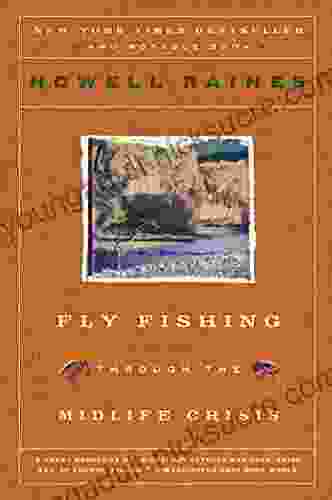
 William GoldingFly Fishing Through the Midlife Crisis: A Journey of Reflection and Renewal
William GoldingFly Fishing Through the Midlife Crisis: A Journey of Reflection and Renewal Timothy WardFollow ·15.8k
Timothy WardFollow ·15.8k Raymond ParkerFollow ·6.9k
Raymond ParkerFollow ·6.9k Dustin RichardsonFollow ·4.1k
Dustin RichardsonFollow ·4.1k Oscar WildeFollow ·8.6k
Oscar WildeFollow ·8.6k Diego BlairFollow ·15k
Diego BlairFollow ·15k Sidney CoxFollow ·13.8k
Sidney CoxFollow ·13.8k Quentin PowellFollow ·10.4k
Quentin PowellFollow ·10.4k Frank ButlerFollow ·12.2k
Frank ButlerFollow ·12.2k

 Devon Mitchell
Devon MitchellDelve into the Comprehensive World of Cartridges: A...
In the realm of firearms, cartridges stand...
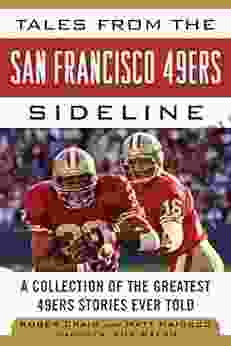
 Joseph Conrad
Joseph ConradTales From The San Francisco 49ers Sideline: A Look...
The San Francisco 49ers are one of the most...

 Ervin Bell
Ervin BellArcGIS Desktop 10: A Comprehensive GIS Tutorial for...
Geographic information...

 Reed Mitchell
Reed MitchellPhysiology Pretest Self Assessment And Review 14th...
Accurately gauge your physiology knowledge and...
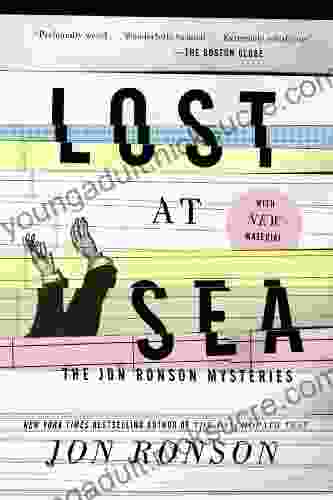
 Devin Ross
Devin RossLost At Sea: The Unbelievable True Story of the Jon...
In 2009, journalist Jon Ronson set out to...
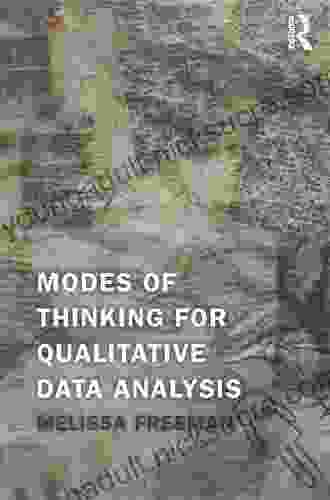
 Shane Blair
Shane BlairModes of Thinking for Qualitative Data Analysis
Qualitative data analysis is a complex...
5 out of 5
| Language | : | English |
| File size | : | 3933 KB |
| Text-to-Speech | : | Enabled |
| Screen Reader | : | Supported |
| Enhanced typesetting | : | Enabled |
| Word Wise | : | Enabled |
| Print length | : | 255 pages |
| Lending | : | Enabled |


